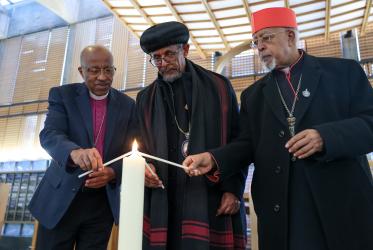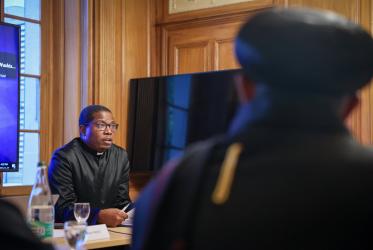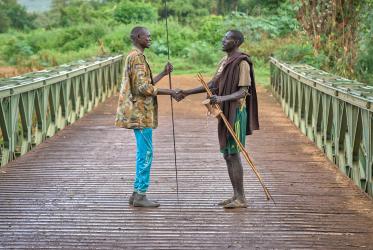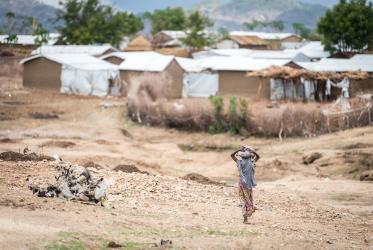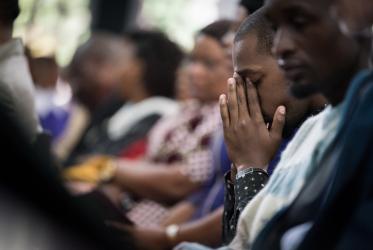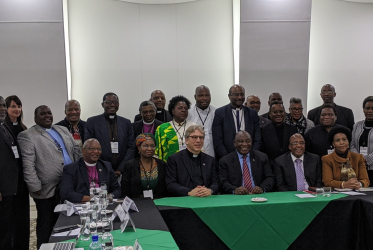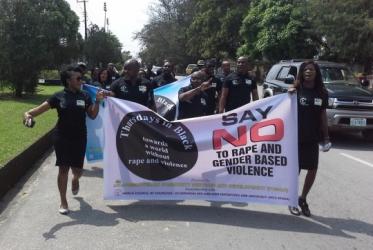Displaying 1 - 20 of 40
Ethiopian church leaders meet at Ecumenical Institute at Bossey
28 November 2023
World mourns loss of Archbishop Desmond Tutu
30 December 2021
Young Africans are eager to grapple with challenges
09 January 2020
WCC delegation meets with South African President Ramaphosa
09 December 2019
Film recognized for highlighting human rights in DRC
18 April 2018
In Nigeria, Thursdays in Black is flourishing
26 March 2018
#WCC70: Churches as “freedom agents”
12 February 2018
South Sudan church leaders offer Christmas season roadmap for hope
21 December 2017
